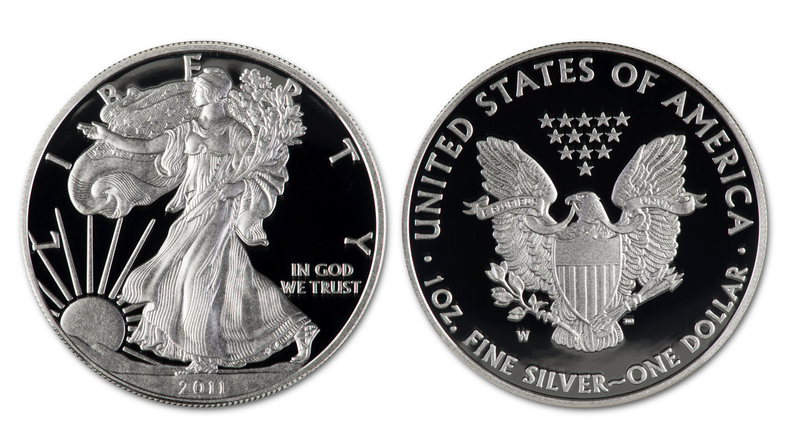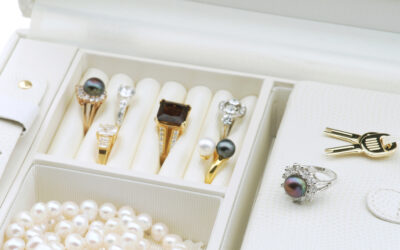If you purchase precious metals like gold or silver bullion, the next – and most critical – step is to keep it safe.
“It doesn’t take long when buying precious metals, rare coins, or bullion before you realize that you need a better storage solution than the back of your sock drawer or a shoe box under your bed,” says Steven Cochran, a precious metal analyst at Gainesville Coins.
There are different storage options available, depending on the type of precious metals you have and what your comfort level is for safety. Follow along to learn how to keep metals such as gold, palladium, platinum, and silver in good condition and have peace of mind.
Safely Storing at Home
If you’re concerned about a change in the U.S. dollar value, an economic crisis, or an impending natural disaster, you might want to keep precious metals close at hand.
Before you stash them under your bed, think through places a burglar might look. Steer clear of obvious places, such as a hiding spot behind a painting, a space under a loose floorboard, inside a hollow book, or in a fake can of cooking spray in the pantry. If you bury metals in the ground, keep in mind that metal detectors can pick up coins hidden several feet under the surface.
A home safe and alarm system might deter potential break-ins. Burglars may steer clear of decoding a safe, and a monitoring setup can add an extra layer of protection. Before investing in these safety features, consider how much your gold and silver bars and coins are worth. Then compare the investment to the price of a safe and alarm system.
“Unless you have a large amount of gold to store, it may not be worth the expense,” says Patricia Russell, a financial planner and founder of FinanceMarvel, a personal finance blog. Also make sure the home safe is fireproof and the right size to store your metals before purchasing.
When buying gold or other precious metals, read your home insurance policy to see if the pieces will be reimbursed. Many insurance companies will not cover bullion in a policy. If you purchase extra coverage, there may be a limit on the amount of value that can be provided for gold or silver.
Maintain a Quiet Front
While you may be excited about buying gold, silver, or other precious metals, the fewer the people who know, the better. Avoid sharing the news with extended family members and friends. The same is true online: avoid mentioning you own precious metals on Facebook, Reddit or Twitter, and don’t post pictures of it on Instagram.
If word gets out, your bullion coins could be in danger.
“Suddenly your gold is gone, many times with no signs of forced entry,” Cochran says.
Research Offsite Storage Options
If you feel more comfortable keeping bullion outside of your home, check with your local bank. Some financial institutions will let you store metals in a safety deposit box or vault. In exchange, you’ll usually have to pay a service fee, and will be limited to accessing the gold or silver during the bank’s business hours.
Certain storage centers offer the option of vaulted storage. With this option, your bullion will be placed in a secure vault, which often consists of a wooden crate. The sealed crate is then stored in a safe, insured warehouse. You’ll need to pay a storage fee based on the amount of space you use and length of time the gold is stored.
Check with the company you purchase gold or silver from, as some will provide storage facilities.
“It’s very similar to online banking,” says Samuel Tang, a designer and gemologist at Joy Creations.
You’ll be able to see what you buy, and the company will store your purchase in a safe location that is fully insured.
Optimal Storage Conditions
“Most of the time, when you purchase a bullion from a mint, it comes sealed in plastic with matching numbers,” Tang says.
In addition to leaving the metal in its packaging, you might opt to buy a box made for the specific piece that will add an extra layer of protection. If you purchase silver coins, they may come in a plastic bag. To keep them safe, consider buying coin capsules to store them in. The plastic and capsules will reduce the risk of damage or tarnishing.
When storing precious metals and rare coins, avoid areas that are prone to humidity or extreme weather conditions. You’ll want the items, and any accompanying documents, to stay dry.
If you want to occasionally take the precious metals out of their containers and handle them, use gloves.
“Pure bullion are usually very soft and even your finger can lightly scratch the surface,” Tang says.






